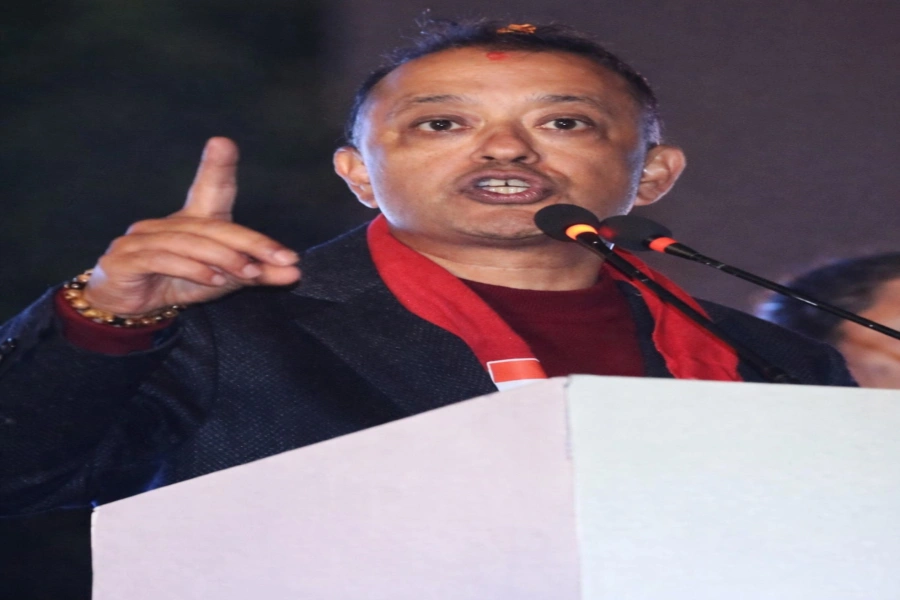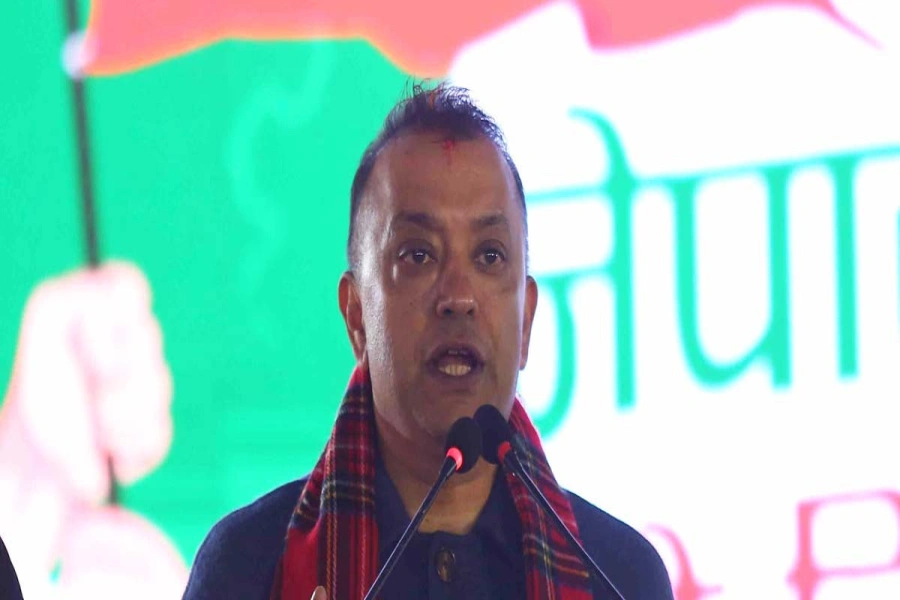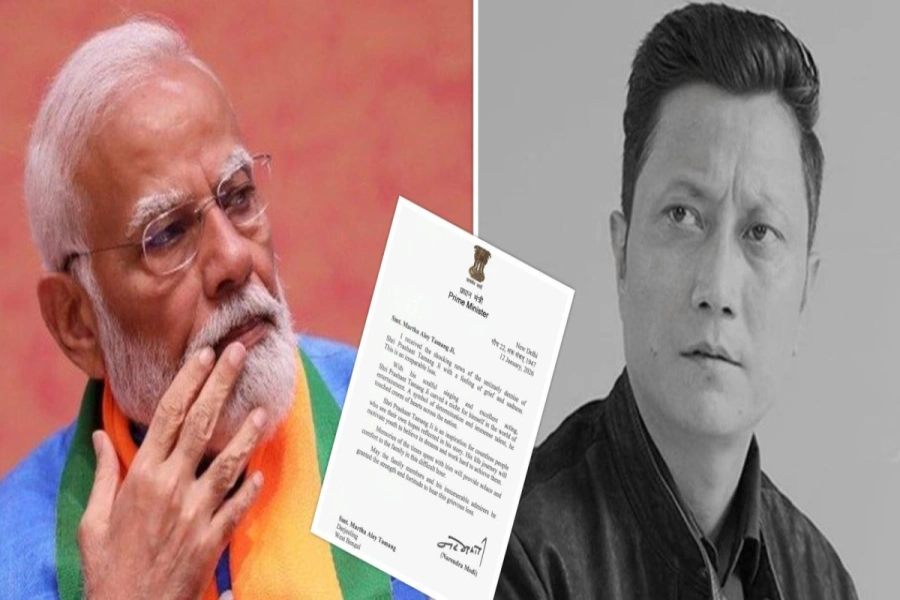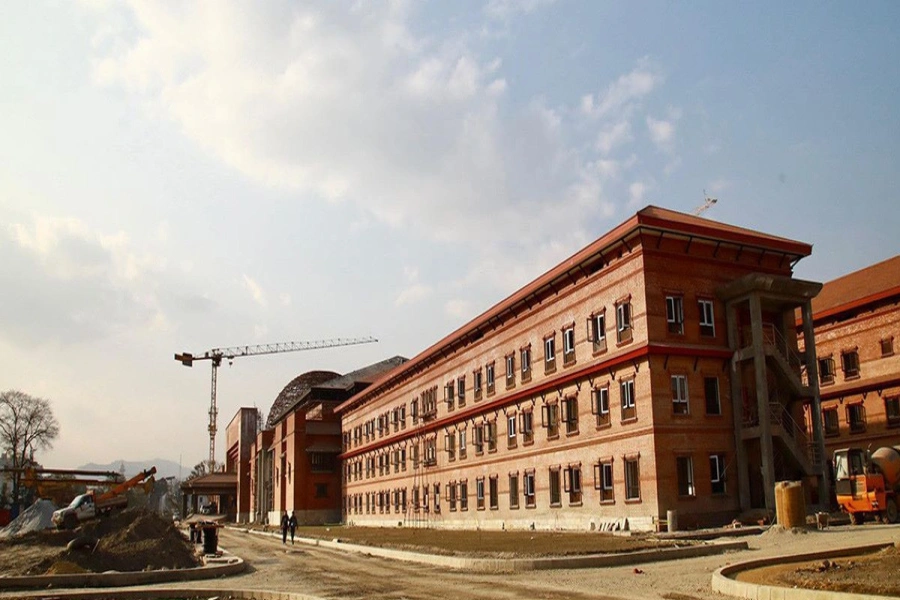Nowhere and at no time have India and China cooperated and coordinated strategy on third countries. Why would they in Nepal?
When Maoist chief Pushpa Kamal Dahal first floated the idea of trilateral cooperation with the Chinese leadership back in 2010, he got encouraging response from Beijing. Or so he thought. In reality, when he proposed three-way cooperation between Nepal, India and China, the Chinese establishment, which had relentlessly courted Nepali Maoists after the 2006 change, found it hard to give a clear 'No' to a close friend. Indeed, anyone who is even a little versed in Chinese diplomacy knows that seldom do they say 'No' outright. It's not in their genes.
So when Dahal returned to Nepal from that trip, he could credibly claim that the Chinese were sold on his idea. It was also at that time that trilateral cooperation came to be seriously discussed in Nepal. I too have in the past written about India's reluctance to back such initiatives involving China. Recently, the misgivings of the southern neighbor on this issue have become even more evident. The Indian ambassador to Nepal, Ranjit Rae, was last week asked by Republica what he made of the trilateral idea. There was no mistaking his reply. "Since two-thirds of Nepal’s trade is with India, and India is the largest investor," replied Rae, "your focus should be on improving trade facilitation measures along Nepal-India borders".
In other words, we should forget about China and further increase our dependence on India. To be fair, the Indians have a reason to doubt the indent of Nepali political leaders, particularly the forever flip-flopping Maoist chairman. When Dahal first publicized the trilateral concept in 2010, it came as a shock to the Indians who didn't have a clue about it. The idea could have found some sympathetic ears in New Delhi had it been first discussed with India. But that is not the whole story. Part of the reason India opposes it has to do with the old Indian mindset that Nepal falls firmly within the Indian 'sphere of influence'. India will as such not brook the expansion of influence of any third party here, least of all that of China against whom it suffered a humiliating loss in the 1962 war.
Disinterested Dragon
Madcap confetti-throwing comic Rip Taylor has died at 84

Hence India's opposition to trilateral cooperation is now established. But what about China? Wasn't President Xi Jinping serious when he said Nepal could be an 'economic bridge' between India and China during Prime Minister KP Sharma Oli's China visit back in March? When I put this question to a close aide of Oli, who was also involved in planning his China trip, he admitted that the trilateral idea had seemed a little 'forced' to the Chinese at the time. Xi, nonetheless, told Oli what he wanted to hear.
Gopal Khanal, the editor of nepalforeignaffairs.com and former PM Oli's foreign policy advisor, also cautions against reading too much into Xi's statement. Moreover, there has been zero homework in Nepal on trilateral cooperation. "The foreign ministry of Nepal doesn't have any such plans. Nor has the agenda been owned by any political party," said Khanal.
For the trilateral idea to materialize, we first need clarity on what it actually entails. Does it mean operating high-speed train between the three countries? Or is a land transit more viable? Does it mean India and China will join hands to invest in Nepal's vital resources, chiefly its rivers? Or is the OBOR the way to go about it? Only if we are clear on these issues can a credible plan be presented before India and China.
Nischal Nath Pandey, the director of the Center for South Asian Studies, offers one way to make the trilateral mojo work. "Tibet is in need of Indian cement, and north India needs cheap Chinese goods," he said. "If you look at the current bilateral trade structure between India and China, it mostly comprises of iron ore, plastics, steel, etc." And this is apparently where the opportunity lies for Nepal. For this to happen, Pandey is of the view that Nepal should scale down its dream and pursue a more limited goal of acting as a trading bridge between India's UP and Bihar and China's Tibet Autonomous Region. Yes, Pandey's plan sounds more plausible. But even he admits that India's "security-related sensitivities" could scuttle the initiative.
Zero-sum game
Seldom in world history have competing regional or global powers agreed to work together in the interests of other countries. During the Cold War, the USSR and the US were at loggerheads to expand their influence abroad, including in South Asia. India used soviet leverage to maintain its sway in the region even as China under Mao Zedong seemed determined to 'export' communism to neighboring countries after getting the security cover from the Americans.
The Cold War is long over but India and China continue to compete for influence in South Asia. The fact that the two countries trade more and more among themselves, with bilateral trade nearing US $100 billion a year, has not decreased their geopolitical rivalry. If anything, their rivalry has intensified.
It is true that the new China of Deng Xiaoping swiftly abandoned the policy of exporting communism. But China, just like any big power would do, continues to strive to establish its sway in its near neighborhood—as does India. They are now engaged in a bitter battle for supremacy in Burma, a traditional Chinese ally which has, following the release of Aung San Suu Kyi from house arrest, steadily inched closer to India. China's unqualified military support for Pakistan, India's sworn enemy, is also a part of the same bigger geopolitical game in South Asia. And now the proxy war is being played out openly in Nepal.
Nowhere and at no time have India and China cooperated and coordinated their strategy on third countries. Afghanistan, Bangladesh, Bhutan, Burma, Pakistan, the Maldives, Sri Lanka—in each of these countries India and China are currently competing to secure their individual interests. It is inconceivable that the two geostrategic rivals will make an exception for Nepal, which is just another theater for the great game.
In fact, we should be more concerned if the two countries start developing common stands on matters of Nepal's interest. (Remember Lipulekh?) If Nepal is to at all benefit from the economic rise of India and China it will have to be through robust bilateral channels that are carefully cultivated over time.
biswasbaral@gmail.com






































